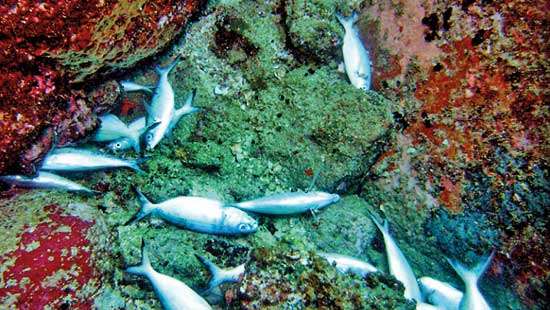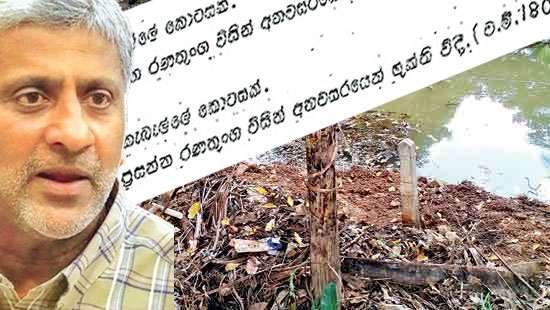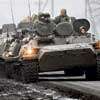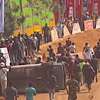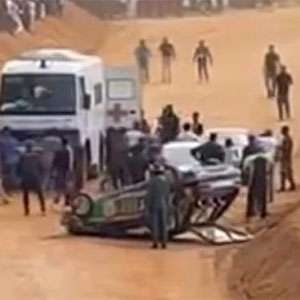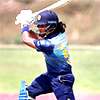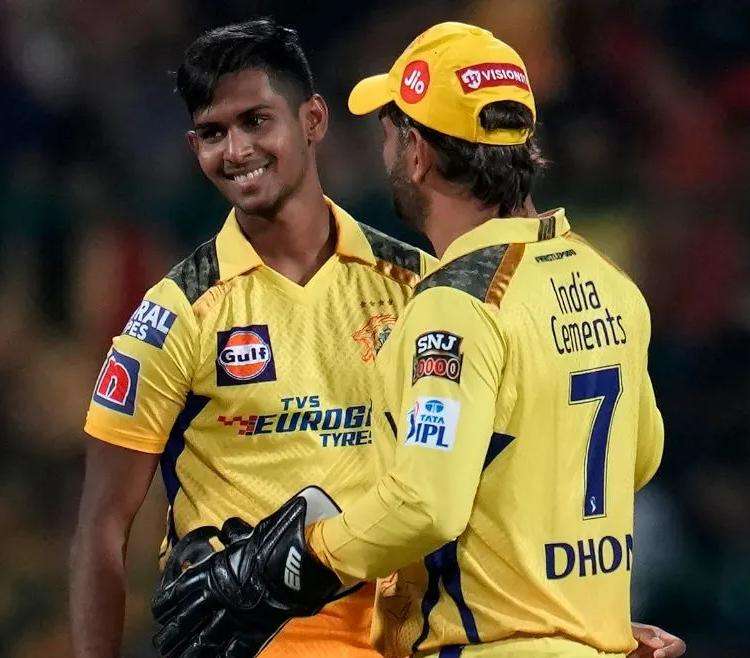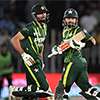The Indian public mood changed overnight. India had welcomed Tamil refugees in 1983 and looked after them. Now, they were made to feel unwelcome. Sri Lankan Tamils were regarded as having abused Indian hospitality

The Indo-Lanka accord has provisions capable of changing Sri Lanka for the better. The 13th Amendment and its creation, the Provincial Council have many flaws but it is the only political arrangement that has addressed legitimate Tamil concerns reasonably in 75 years of post-Independence politics in Sri Lanka

Pragmatic politics decrees that the attainable in the hand is worth two desirables in the bush

The Indian public mood changed overnight. India had welcomed Tamil refugees in 1983 and looked after them. Now, they were made to feel unwelcome. Sri Lankan Tamils were regarded as having abused Indian hospitality
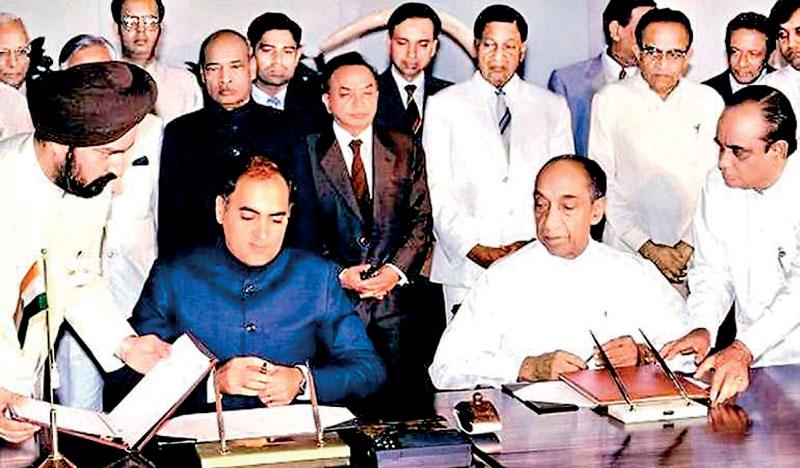
Indian Prime Minister Rajiv Gandhi (Left) and Sri Lankan President J.R. Jayewardene (Right) signing the historic Indo-Lanka Accord in July 1987.
By D.B.S.Jeyaraj
 Former Indian Prime Minister Rajiv Gandhi was assassinated by the Liberation Tigers of Tamil Eelam (LTTE) on 21 May 1991. He was killed at a place called Sriperumbhudur in the south Indian state of Tamil Nadu. Death came in the form of Dhanu a young Tamil woman from Sri Lanka. Dressed in a churidar she came up to the smiling Rajiv and garlanded him. The girl bent low to touch his feet as a mark of respect. Then came the deadly explosion. Rajiv Gandhi was no more!
Former Indian Prime Minister Rajiv Gandhi was assassinated by the Liberation Tigers of Tamil Eelam (LTTE) on 21 May 1991. He was killed at a place called Sriperumbhudur in the south Indian state of Tamil Nadu. Death came in the form of Dhanu a young Tamil woman from Sri Lanka. Dressed in a churidar she came up to the smiling Rajiv and garlanded him. The girl bent low to touch his feet as a mark of respect. Then came the deadly explosion. Rajiv Gandhi was no more!
The date of Rajiv Gandhi’s death has poignant significance for me personally. May 21st is the date of my birth. Rajiv’s death occurred 37 years after I was born. My birth and his death are intertwined in my consciousness. Rajiv’s memory looms large as each birthday approaches. It is against this backdrop that I re-visit Rajiv Gandhi’s assassination with the aid of my earlier writings.
Rajiv Ratna Gandhi, who was India’s Prime minister from 31st October 1984 to December 2nd 1989 was not serving as Premier at the time of his demise.
An election campaign was underway then to elect a new Lok Sabha or Parliament. The Congress led by Rajiv was the front-runner in that race at that time.
Rajiv, as he was generally known was in Sriperumbudur to address a propaganda meeting in support of Congress party candidate Ms Maragatham Chandrasekhar.
The 46-year-old Indian ex–Premier was then immersed in a hectic political campaign to win the Indian Parliamentary elections.
It was then that the Sri Lankan Tamil girl known by the name of Dhanu got close to Rajiv Gandhi and tried to give him a sandalwood garland.
When a Policewoman tried to shoo her off, Rajiv restrained her and told the cop to let the girl come near. The bespectacled girl in an orange and green churidar then came near and bent down respectfully to touch Rajiv’s feet.
She set off a concealed explosive device that was strapped to her body.
Rajiv Gandhi, the assassin Dhanu, and at least 18 others were killed in the blast instantly.
Another 42 were seriously wounded. A few of the injured also succumbed to their wounds in hospital later on.
The ‘human bomb’ assassination that was soon to become a hallmark of the LTTE rocked India and shocked the world.
Famous Political Family
In an irresponsible, singular act the LTTE had murdered on Tamil Nadu soil a former Indian Prime minister hailing from India’s most famous political family.
Rajiv’s mother Indira Gandhi had been Prime Minister of India from 1966 to 1977 and from 1980 to 1984.
Rajiv’s maternal Grandfather Pandit Jawaharlal Nehru became Independent India’s first Prime Minister in 1947 and remained at the helm for 17 years until he died in 1964.
Rajiv’s great-grandfather Pandit Motilal Nehru was a leading lawyer and a President of the Congress Party. He played a prominent role in the Indian freedom struggle against Britain.
Rajiv’s father Feroze Gandhi (No relative of Mahatma Gandhi) was a Lok Sabha MP from 1952 till his demise in 1960.
Yet, the LTTE, led by its autocratic Supremo Thiruvengadam Veluppillai Prabhakaran had absolutely no qualms about daring to assassinate a person of Rajiv Gandhi’s political stature in India.
As is typical of Prabhakaran and the LTTE, the assassination was perceived as a ‘militaristic’ feat alone without much thought about its political fall-out or possible repercussions.
The tigers were absolutely unconcerned about the resultant effects affecting the Sri Lankan Tamil people.
Shortly after the assassination, I wrote an article for the Indian newsmagazine Frontline, in which I observed that if the LTTE was indeed responsible for the assassination, then the losers, in the long run, would be the Sri Lankan Tamil people.
Subsequently, it was proved conclusively that the LTTE was indeed responsible. The consequences of the Rajiv Gandhi assassination continued to be felt by the Tamil people in general and the LTTE in particular throughout the years right up to the shores of Nandhikkadal lagoon in May 2009.
The politico-military chutzpah of the LTTE in deploying an assassination squad across the seas to eliminate a former and potential future Prime Minister of the regional superpower on his home turf, raised many an eyebrow after Rajiv Gandhi was murdered. The Rajiv Gandhi assassination committed on Indian soil was an act of international terrorism that placed the LTTE on the index of global terrorists.
The decision and overall plot to assassinate Rajiv Gandhi in India was taken by LTTE leader Veluppillai Prabhakaran and its Intelligence Chief Shanmugalingam Sivashankar alias Pottu Ammaan.
The actual assassin, who blew up her explosive-laden body belt was a girl
called Dhanu.
She was handpicked by the then LTTE woman’s wing leader Akila.
The key LTTE operative, who devised the assassination plan and directly oversaw its execution at the field level was an intelligence wing member of the LTTE named Chandrasekharampillai Packiachandran, who used two nom de guerre. One name was Raghuvaran. The other was Sivarasan.
Since he had lost an eye, he was frequently called by his comrades at arms and colleagues as Ottraikkannan (One–eyed person).
Sivarasan was specifically selected and assigned the task of killing Rajiv Gandhi by Prabhakaran and Pottu Ammaan.
Sivarasan and his accomplices went into hiding after the killing. A search was launched. After an intense 90-day manhunt, Indian law–enforcement officers surrounded the house, in which Sivarasan, along with some other LTTE cadres, was staying.
It was a house in the Bangalore (Now Bengaluru) suburb of Konanakunte in the Karnataka State. Sivarasan and the others consumed cyanide and killed themselves before they could be captured alive.
Ironically Sivarasan, who masterminded Rajiv’s murder committed suicide on August 20th, which was the date of Rajiv Gandhi’s birth.
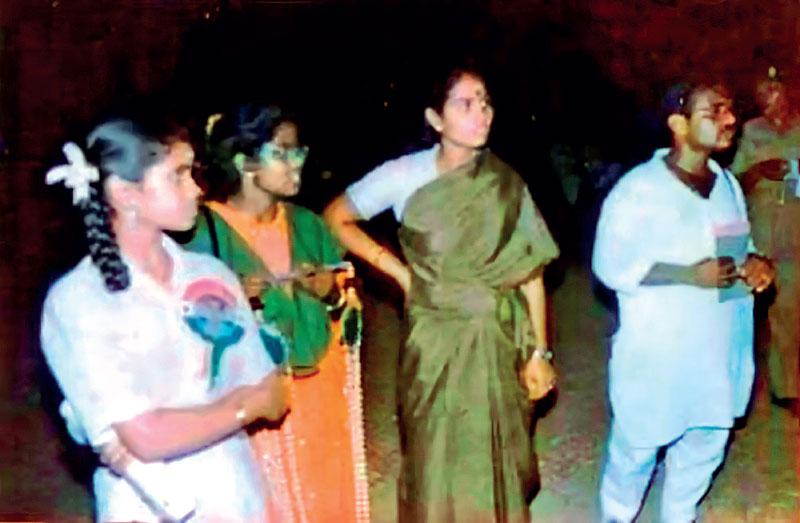
Ottraikkannan (Sivarasan) and Dhanu (wearing an orange dress) can be seen at the Sriperumbhudur rally of the Congress just moments before the tragic assassination of Rajiv Gandhi on May 21, 1991.
Pro-Tiger Emissaries
The Rajiv assassination came at a time when influential journalists in Chennai were trying hard to bring about a rapprochement between Rajiv and the LTTE.
The well-known Tamil poet Kasi Anandan (Kathamuthu Sivanandan) met Rajiv Gandhi in March of that year. The London-based financial consultant Arjuna Sittambalam met Rajiv a few weeks later. Both were regarded as pro-Tiger emissaries.
It appeared that the stage was being set for some kind of political reconciliation. The Indian establishment at that time was more angry with Sri Lankan President Ranasinghe Premadasa for booting out the Indian Peace Keeping Force (IPKF) than the LTTE, which fought the Indian army.
Sathasivampillai Krishnakumar alias Col. Kittu was living in London then. The former Jaffna commander of the LTTE was then head of the LTTE International Secretariat.
It was Kittu acting at the behest of his leader who was instrumental in sending emissaries to meet Rajiv Gandhi.
He was doing so because Velupillai Prabakharan had instructed him to do so.
I was in close contact with Kittu those days and played a minor role in those efforts to reconcile with Rajiv Gandhi and by extension with India.
Though I had been critical of Rajiv Gandhi and the IPKF earlier, the wisdom of hindsight had made me realise that the Sri Lankan Tamils could not afford to be alienated from India in the long term.
Alas! All those hopes and the efforts, of those Indian Journalists who in association with Kittu arranged the meetings with Rajiv, were dashed when it became clearly established that the Tigers were indeed responsible for the killing.
What happened thereafter was a progressive estrangement between ‘Mother’ India and her ‘Eelam’ Tamil children.
The people of Tamil Nadu in particular were hurt and angry then at the LTTE
Indian Public Mood
The Indian public mood changed overnight. India had welcomed Tamil refugees in 1983 and looked after them. Now, they were made to feel unwelcome. Sri Lankan Tamils were regarded as having abused Indian hospitality.
The LTTE was officially banned. Indian policy towards Sri Lanka changed. No longer was the welfare of Sri Lankan Tamils paramount in Indian calculations.
Whatever the protests and pressures by the pro-LTTE lobby in Tamil Nadu and whatever the extent of emotional sympathy for the Tamils of Sri Lanka in Tamil Nadu there is always a Lakshmana Rekha that New Delhi would not cross in the case of Sri Lanka. The killing of Rajiv Gandhi by the LTTE played a big part in demarcating this Rekha or line.
Rajiv had won the world’s admiration and respect when he went to Colombo to sign the Indo-Lanka Accord in 1987. The Tamils on the whole were happy at that time. I remember writing a piece headlined WhyTamil eyes are smiling for The Island then.
IPKF-LTTE War
Things changed when war erupted between the Indian Army and the LTTE. The Indian Army, designated as the Indian Peace Keeping Force (IPKF) became known as the Innocent People Killing Force.
The IPKF-LTTE war dragged on. Tamil civilians suffered immensely.
I was in Jaffna when the IPKF-LTTE fighting began on October 10, 1987.
I saw the atrocities and civilian killings first-hand. When I returned to Colombo and exposed these in The Island I was arrested and detained on the fourth floor.
I was also charged in court but ultimately cleared by courts of any alleged offence. It was this case and the consequent harassment that followed, which made me leave Sri Lanka in September 1988.
There was a time when my relationship with the Indian High Commission officials in Colombo was excellent.
I was the Hindu correspondent then. Other Indian journalists used to call me the blue-eyed boy of the IHC.
Yet, my relationship soured because I criticised the IPKF, some aspects of the Indo-Lanka Accord and Rajiv Gandhi.
I was even fired by The Hindu for trying to expose incidents of rape by the IPKF Soldiers in Jaffna.
Indo-Lanka Accord
With the passage of time, my thoughts about the Indian role and Rajiv Gandhi too began to change.
Looking at the predicament of the Tamils, I felt that the Indo-Lanka Accord with all its shortcomings would have been much better for the Tamils in particular and Sri Lanka in general if it had been allowed full implementation at the time it was signed.
The Indo-Lanka accord has provisions capable of changing Sri Lanka
for the better.
The 13th Amendment and its creation, the Provincial Council have many flaws but it is the only political arrangement that has addressed legitimate Tamil concerns reasonably in 75 years of post-Independence politics in Sri Lanka.
Pragmatic politics decrees that the attainable in the hand is worth two desirables in the bush.
In the post-war scenario that has diminished Tamil political power considerably can grandiose political expectations be viable?
I remember the past vividly when former Indian High Commissioner JN Dixit, Political Secretary Hardeep Singh Puri and Information Secretary Lakshmi Puri were trying to convince me in discussions that the Indo-Lanka Accord was the best possible deal that the Tamils could have obtained at that time.
Historically it was the highest quantum of Tamil rights recognized by the Sinhala dominated State. “Let us work it out and improve it further,” they would say. But I would have none of it then.
Belatedly, I realise the wisdom in those views. After years of strife and sacrifice the Tamil people have not achieved anything tangible other than the India-facilitated Provincial Councils.
It is with this mindset therefore that I think of Rajiv Gandhi nowadays.
Though critical of Rajiv then, I realise now that he was trying to do the right thing by the Tamils and Sri Lanka.
N. Ram the former Editor-in-Chief of The Hindu was to tell me once that Rajiv Gandhi despite his blunders was genuinely sincere in trying to resolve the ethnic problem in Lanka.
Other Indian journalists have also told me that Rajiv felt sorry for the Tamils and wanted to usher in a fair deal for them. I also subscribe to these sentiments now.
Rajiv’s Legacy in Sri Lanka
Let us, therefore, remember Rajiv Gandhi on his death Anniversary as the man who wanted to usher in a fair deal for Sri Lankans in general and Tamils in particular.
Let us commemorate him with the acknowledgement that the accord he signed on July 29, 1987, remains the best possible settlement to the Tamil national question ever made so far.
Let us also hope and strive to ensure that Rajiv’s political legacy in Sri Lanka, which is the 13th Amendment-based Provincial Council system, will endure the trials of time and bring about lasting peace.
D.B.S. Jeyaraj can be reached at dbsjeyaraj@yahoo.com




 Former Indian Prime Minister Rajiv Gandhi was assassinated by the Liberation Tigers of Tamil Eelam (LTTE) on 21 May 1991. He was killed at a place called Sriperumbhudur in the south Indian state of Tamil Nadu. Death came in the form of Dhanu a young Tamil woman from Sri Lanka. Dressed in a churidar she came up to the smiling Rajiv and garlanded him. The girl bent low to touch his feet as a mark of respect. Then came the deadly explosion. Rajiv Gandhi was no more!
Former Indian Prime Minister Rajiv Gandhi was assassinated by the Liberation Tigers of Tamil Eelam (LTTE) on 21 May 1991. He was killed at a place called Sriperumbhudur in the south Indian state of Tamil Nadu. Death came in the form of Dhanu a young Tamil woman from Sri Lanka. Dressed in a churidar she came up to the smiling Rajiv and garlanded him. The girl bent low to touch his feet as a mark of respect. Then came the deadly explosion. Rajiv Gandhi was no more! 
